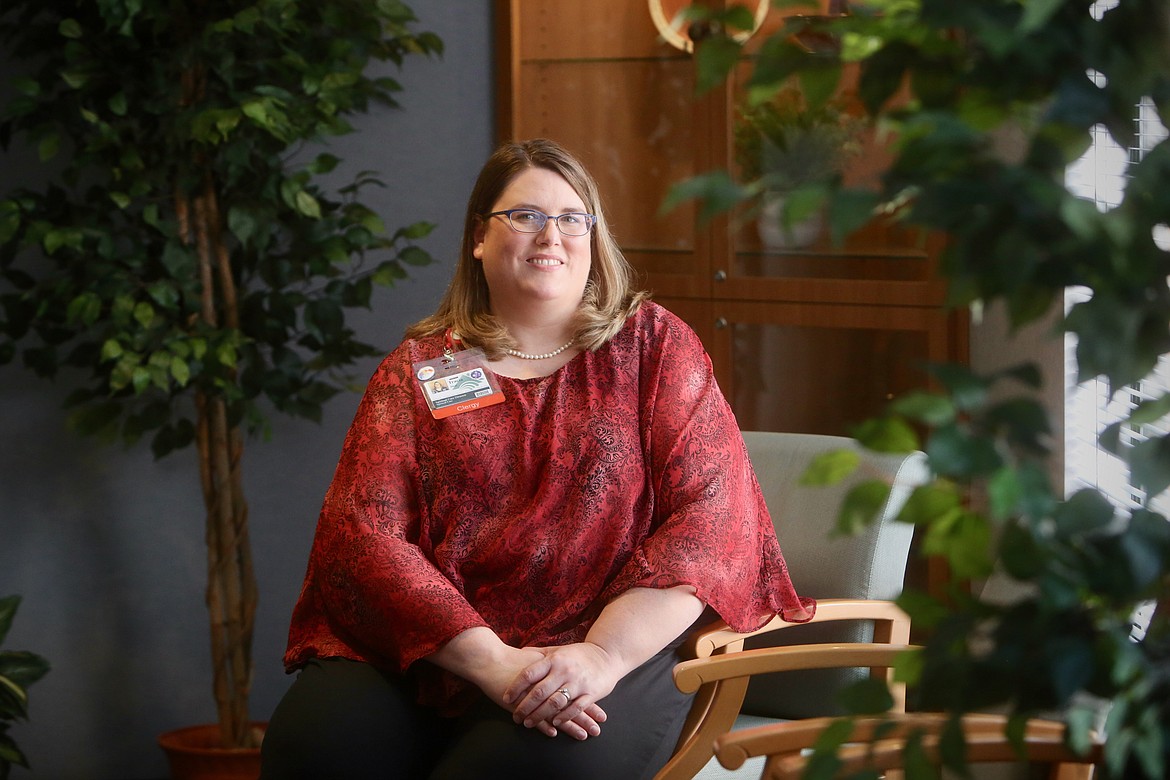Hospital chaplain provides emotional support at the bedside
One of the cruelest consequences of the coronavirus pandemic is the way it has divided us, especially in the physical sense. That gap is felt most acutely in the halls of hospitals around the country and right here in Montana, as visitation restrictions have been in place for so many months.
Gone are the days of large family groups convening at the bedside of the dying, bending forward to hear those last, most precious words and comforting one another after their loved one’s last breath has left them.
But while a patient’s loved ones can’t always be at their bedside, there is one person who can provide emotional support — hospital chaplain Tracia Deal.
She is allowed in when others are kept out for the safety of the facility as a whole, and it’s a role she assumes with the utmost honor.
“I always felt that I wanted to do something for the greater good, for God,” she said. “It’s been a lifetime of fulfillment for me. Sometimes I pinch myself that I get to do my job because it’s such a passion for me.”
Deal, a Polson native, spent two decades in church ministry before making the switch to chaplaincy about six years ago.
“In chaplaincy, I'm not here to evangelize, I’m not here to overtly spread the word of Jesus Christ,” Deal said. “I meet people where they’re at and I try to figure out what their spirituality is like, what gives them joy and purpose in life, and use that as a springboard to help them through whatever they're going through here at the hospital.”
On any given day she might meet with local clergy members, spend time with patients and family members, or even preside over a funeral. Deal serves the Kalispell Regional Healthcare complex, from the emergency room to Montana Children’s, and not just patients and their loved ones, but staff members, too. She is there to provide spiritual guidance, if requested, or simply to offer a comforting word, and sometimes no words at all.
Recently, she was called to comfort staff members of the assisted living facility Brendan House, which was rocked by a coronavirus outbreak late last year that took the lives of 12 residents.
“They had worked so hard — it was like 10 months that they had no COVID over there and then all of a sudden it was there. A lot of them just took that personally,” Deal recalled. Her duties ran the gamut, from offering blessings as employees donned personal protective equipment to checking in with them individually in the aftermath.
DEAL IS no stranger to doing everything she can for the people she serves. For the first few months of her employment, which began in June 2020, the pandemic was in full swing and in an effort to limit traffic in the hospital, community clergy members and volunteer chaplains weren’t allowed in. This meant Deal was the sole spiritual resource in the hospital and had to be on call 24/7.
“From June to October it was just me,” she recalled.
While her job isn’t always easy, Deal looks at her experiences through a lens of gratitude, especially when she is called to help people navigate the end of life.
“I consider that to be sacred space and it’s an honor when a family member allows you in, because I’m a stranger to them,” Deal said. “I get to have those opportunities quite often and it's very rewarding to me to be able to share that space with the family.”
She’s also been the boots on the ground when family members physically can’t be in a patient’s room. With COVID-19, she facilitates calls with family members, recites prayers at patients’ doors and converses with COVID-positive patients at their bedside.
“There's been quite a bit of scholarly work done about the emotions of COVID patients while they are isolated in COVID units and one of the ways to intervene is to actually have somebody else in there who’s not going to poke you or talk about your breathing,” Deal said. “Sometimes you don't have to say anything — just being there is important.”
She’ll often converse with the patient or bring along enrichment tools such as coloring books, inspirational stories and music. Frequently, she’ll enter a room to find the patient lacking what she calls “that fighting spirit.”
“All of that’s just gone from them, quite often. Just having somebody there to encourage you and give you some uplifting words can be the turnaround for you,” she recalled. “We had one particular patient who told me that my visits helped her the most.”
For Deal, it’s the people who matter most in her line of work.
She treasures the stories they share with her and all of the ones she gets to be part of.
“We’re mind, body and spirit,” Deal said. “We need to take care of all sides and facets of ourselves, not just the physical side.”
Reporter Mackenzie Reiss can be reached at mreiss@dailyinterlake.com or 406-758-4433.


